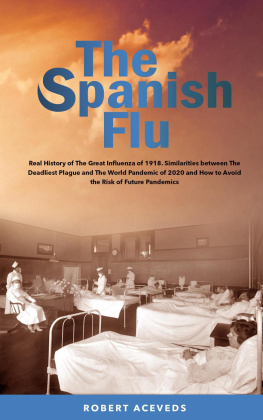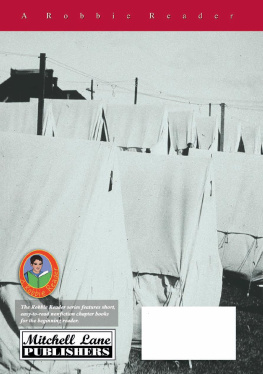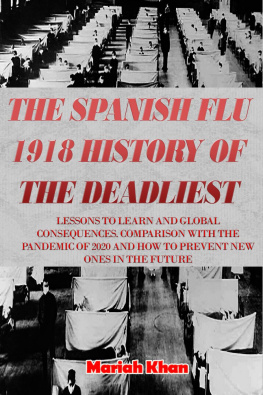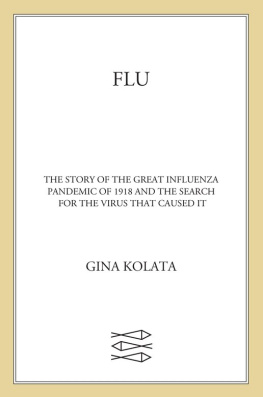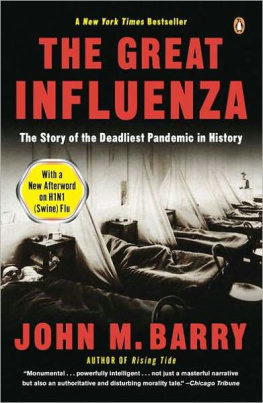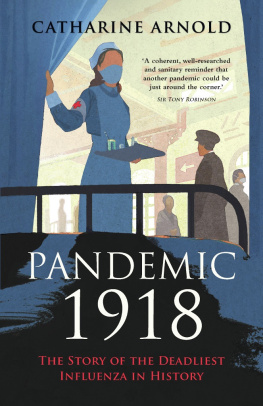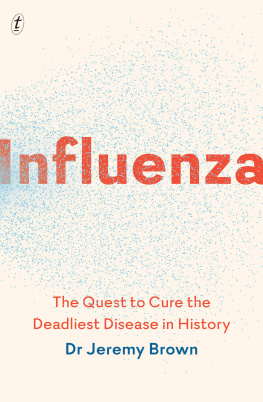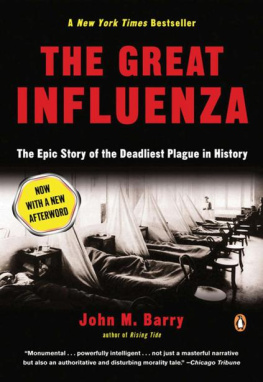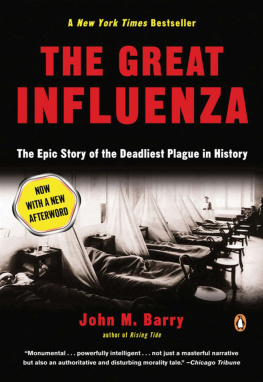THE LAST PLAGUE
Spanish Influenza and the Politics of Public Health in Canada
The Spanish influenza of 191819 was the deadliest pandemic in history, killing as many as fifty million people worldwide. Canadian federal public health officials tried to prevent the disease from entering the country by implementing a maritime quarantine, as had been their standard practice since the cholera epidemics of 1832. But this was a different type of disease. In spite of the best efforts of both federal and local officials, nearly fifty thousand Canadians died.
In The Last Plague, Mark Osborne Humphries examines how federal epidemic disease management strategies developed before the First World War, arguing that the deadliest epidemic in Canadian history ultimately challenged traditional ideas about disease and public health governance. Using federal, provincial, and municipal archival sources, newspapers, and newly discovered military records, as well as original epidemiological studies, Humphries sweeping national study situates the flu within a larger social, political, and military context for the first time. His provocative conclusion is that the 191819 flu crisis had important long-term consequences at the national level, ushering in the modern era of public health in Canada.
MARK OSBORNE HUMPHRIES is an assistant professor in the Department of History at Memorial University of Newfoundland.
The Last Plague
Spanish Influenza and the Politics of Public Health in Canada
MARK OSBORNE HUMPHRIES
University of Toronto Press 2013
Toronto Buffalo London
www.utppublishing.com
Printed in Canada
ISBN 978-1-4426-4111-2 (cloth)
ISBN 978-1-4426-1044-6 (paper)

Printed on acid-free, 100% post-consumer recycled paper with vegetable-based inks
Library and Archives Canada Cataloguing in Publication
Humphries, Mark Osborne, 1981
The last plague : Spanish influenza and the politics of public health in Canada / Mark Osborne Humphries.
Includes bibliographical references and index.
ISBN 978-1-4426-4111-2 (bound) ISBN 978-1-4426-1044-6 (pbk.)
1. Influenza Epidemic, 19181919 Canada History. 2. Influenza Epidemic, 19181919 Social aspects Canada. 3. World War, 19141918 Health aspects Canada. 4. Public health Political aspects Canada History 20th century. 5. Disease management Canada History 20th century. 6. Medical policy Canada History 20th century. I. Title.
RC150.55.c3h84 2012 614.518097109041 C2012-902022-2
University of Toronto Press acknowledges the financial assistance to its publishing program of the Canada Council for the Arts and the Ontario Arts Council.
University of Toronto Press acknowledges the financial support of the Government of Canada through the Canada Book Fund for its publishing activities.
This book has been published with the help of a grant from the Canadian Federation for the Humanities and Social Sciences, through the Awards to Scholarly Publication Program, using funds provided by the Social Sciences and Humanities Research Council of Canada.
Contents
Figures and Tables
Figures
Tables
Acknowledgments
This project began in the winter of 2004 as an essay I wrote for a third-year history class at Wilfrid Laurier University. John Maker, my tutorial adviser at the time and now a close friend and collaborator, marked the essay, thought it was all right, and suggested that I see what else I could find. At the time, I remember feeling that I had said all there was to say in those twenty-five pages. I hope he agrees that I was wrong!
Wilfrid Laurier University was an exceptional place to study as an undergraduate and then masters student. The faculty, staff, and students of the Department of History left a deep impression on me during my five years there. Hilary Earl (now at Nipissing University), Leonard Friesen, John Laband, Doug and Joyce Lorimer, Michael Sibalis, and Cynthia Comacchio all taught me the importance of finding the best evidence and testing your assumptions as a historian. Roger Sarty, who co-supervised my MA thesis, read an early draft of several of these chapters. At the Laurier Centre for Military Strategic and Disarmament Studies (LCMSDS), I had the chance to work with scholars, administrators, and students, all of whom supported this project in one way or another: Mike Bechthold, Sarah Cozzi, Geoff Hayes, Andrew Iarocci, Geoff Keelan, Marc Kilgour, Kellen Kurschinski, David Livingstone, Vanessa McMackin, Katie Rose, Matt Symes, Jane Whalen, and Jim Wood. While Tim Cook of the Canadian War Museum is not a Laurier alumnus, I first met him there through the annual Canadian Military History Conference in 2004, and over the years he has provided me with guidance, insight, and friendship. Tim read two early draft chapters from this book and, as usual, his comments have improved the project immensely.
Terry Copp, who was my BA thesis supervisor and co-MA supervisor, and my mentor in so many ways, has now read this book in several forms. In 2004, he suggested that the project was too big for an MA thesis even when it focused on the Canadian military and the flu alone and suggested that I should begin my research but leave the project for my PhD. That advice was probably the best I have ever received. Without the opportunities and funding that Terry provided me through LCMSDS and the Department of National Defences Security and Defence Forum (SDF) program, this book would have never been written. I owe him more than I can ever repay.
I took a break from flu during my masters degree in 2005, then returned to it for my PhD dissertation at the University of Western Ontario, which I defended in 2008. At Western, I am indebted to Adrian Ciani, Dorotea Gucciardo, Shelly McKellar, Rod Millard, Thomas F. Sea, and Robert Wardhaugh. My dissertation committee was assembled around some very tight timelines, and despite the compelling pressures of a Christmas defence, provided probing and meaningful feedback. A warm thank you is due to Luz Maria Hernndez-Senz and Francine McKenzie (both of whom also completed fields with me in medical history and the British Empire), Mark Speechley, and Pat Brennan of the University of Calgary. Jonathan Vance, who supervised my thesis, was an excellent mentor and supervisor. He was always willing to read chapters and provide feedback in an amazingly short time, despite his many other important commitments. Thank you for having faith in the project and in me.
I must thank Joe Anderson and Thomas E. Brown of Mount Royal University (MRU) in Calgary, Alberta, for reading drafts of several chapters; also at MRU, Peter Morton, Scott Murray, Jennifer Pettit, and Jeffrey R. Wigelsworth provided friendship and support in other ways. Joe was also crazy enough to join me on an overseas field school in the spring of 2011 thankfully, we are still friends. I have subjected my students to countless readings and long discussions on influenza; your insights are reflected in this book in one way or another. Here I wish to specifically thank Alexander Large, Paula Larsson, Heather Randall, and Fay Wilson who, as my BA thesis students and research assistants, were all forced to endure more flu talk than the rest. Teaching is always a two-way street. This book was completed in the Department of History at Memorial University of Newfoundland, where I want to thank all my colleagues and especially Sean Cadigan and Jeff Webb.
Next page

